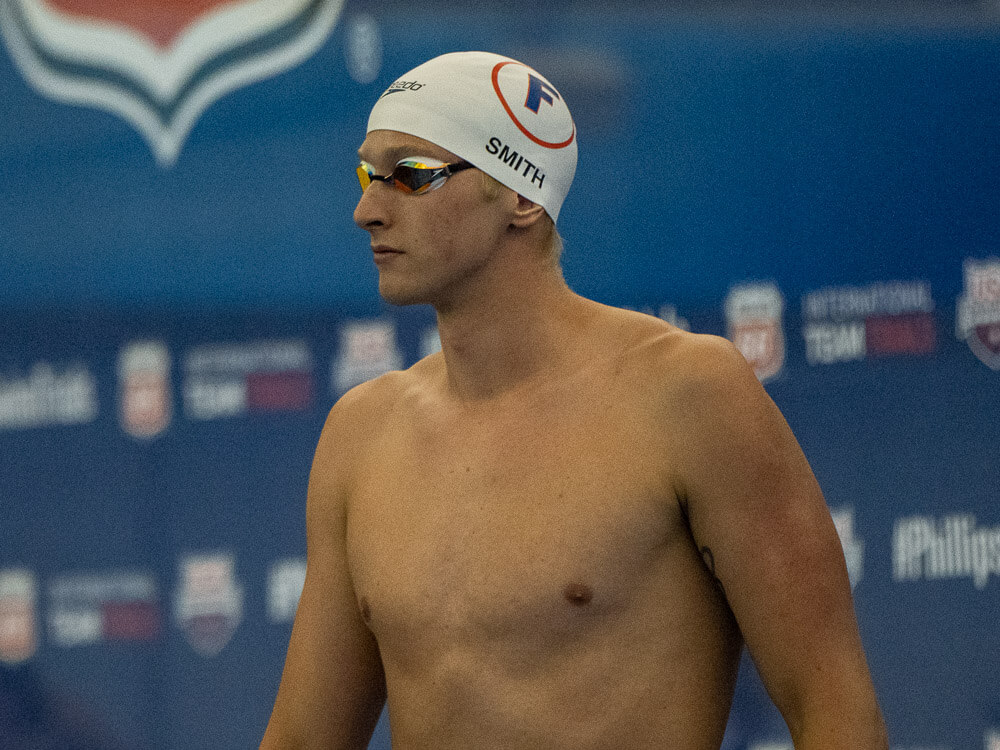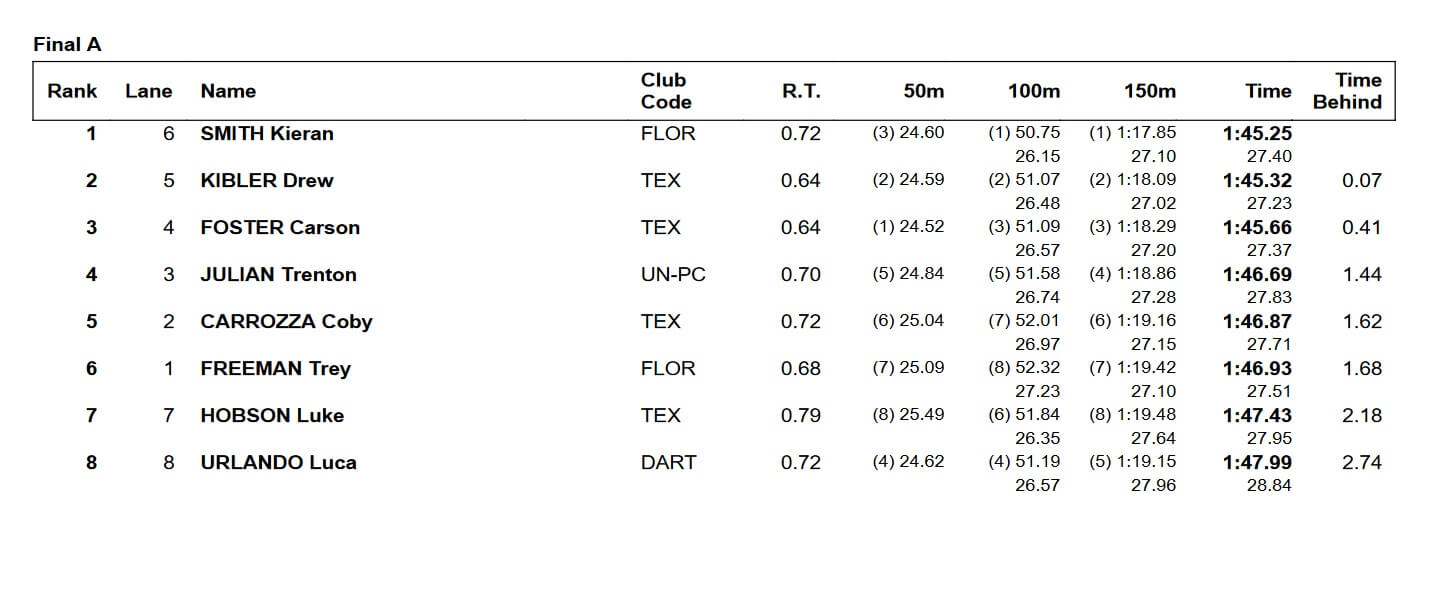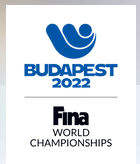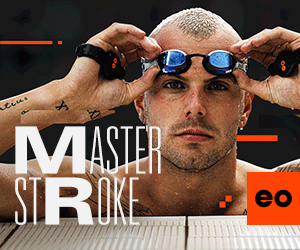U.S. International Team Trials: Kieran Smith, Drew Kibler Head Trio of 1:45 200 Frees (VIDEOS)

Editorial content for the 2022 FINA World Championships coverage is sponsored by eo SwimBETTER.
See full event coverage.
Swim faster... faster, with game-changing data insight into your technique. eolab.com #eoSwimBETTER

U.S. International Team Trials: Kieran Smith, Drew Kibler Head Trio of 1:45 200 Frees
By the historical view, it was a shocking result, though it should’ve surprised no one in the present. Of all the performances at the Tokyo Olympic Games by Americans, the biggest historical outlier came in the men’s 800 free relay, where, for the first time in 51 relays in non-boycotted Games, the U.S. failed to medal. It was a result that was both unthinkable yet inevitable when the times were stacked up.
That underwhelming performance opened the door for change. And in have stepped in a new generation of mid-distance options. If the group doesn’t necessarily contain a star quite of the caliber it does in other events, at least it possesses depth that was lacking this time last year.
Kieran Smith led the way at U.S. International Team Trials Wednesday with a time of 1:45.25, followed by Drew Kibler in 1:45.32. Those are the two fastest times in the world this year, and the U.S. is the only nation with three sub-1:46 times.
“My plan was to jump on the first 100 like I did last summer a lot of the times, and man that last 50 hurt really bad,” Smith said on the broadcast. “Drew’s been putting together really good 200 frees, so I just knew I had to get it done.”
Links:
Smith jumped to the lead after 100 meters, taking it out in 50.74. The sixth-place finisher in Tokyo and Olympic bronze medalist in the 400 free had just enough coming home to hold off Kibler, the reigning NCAA champ, by .07 seconds. He credits work on his legs after NCAAs to have more strength for the final 50.
“That was exactly what I needed for my head,” Smith said. “Just really happy to book a win. NCAAs, SECs wasn’t perfect, wasn’t great, but it’s still nice to know I can be on top of the 200 frees.”
Third was Carson Foster in 1:45.66; his morning time of 1:45.57 was the third-fastest in the world, though his teammates nudged him down to fifth at night.
It gets Foster over the hump and onto an international team. He swam a time last summer that was faster than the Olympic champion in the 400 IM, despite not making it to Tokyo due to a so-so Trials. Shaking that near-miss and getting to a major meet is a significant step for him, especially with the 400 IM still ahead of him this week in Greensboro.
“I can’t even put into words how big of a relief it is,” Foster said. “I feel like I’ve been there for so long, coming close and coming a little bit short. I knew I had it in me.”
Entering the day, only four swimmers in the world had cracked 1:46 in 2022, with just 19 going better than 1:47. The U.S. produced seven-sub-1:47 swims. Reigning Olympic champion Great Britain remains the nation to beat in the relay, with Duncan Scott (1:45.54) and Tom Dean (1:45.73) fourth and sixth in the world, respectively. The silver medal went to the Russian Olympic Committee, whose athletes are banned from swimming at Worlds in Budapest.
From a relay perspective, the U.S. are in better shape. Smith was 1:44.74 to lead off in Tokyo. Now retired Townley Haas went 1:44.87 off the end. The odd man out was Zach Apple, who swam the fourth leg in 1:47.31. (Kibler was 1:45.51 in Tokyo.)
“It happens. It’s nobody’s fault,” Smith said of the taste left by that relay. “We put together the best relay that we could for the time being. I was obviously stoked with my split, but it is what it is. Just on to the next year.”
That fourth leg is still a dip, but less so. Trenton Julian was fourth in 1:46.69. He was followed by Coby Carrozza (1:46.87) and Trey Freeman (1:46.93), with the time of B final winner Grant House (1:46.91) in between.
Kieran Smith, Julian, Foster and Ryan Held set an American record of 6:47.00 to win gold at the Short-Course World Championships in December in Abu Dhabi. It illustrates how quickly a contingent can bounce back.
Four of the A finalists Wednesday hail from the University of Texas, though that’s not new. You’d have to go back to the 2004 Olympics for a U.S. 800 free relay without a Texas swimmer.
“I just wanted to have a good race with my friends,” Kibler said. “Biggest thing is it’s sweet to see four guys in the final there. That’s the thing that had me most excited: Touched the wall, saw my time and immediately started looking to see where my teammates where. That’s the big thing. It was pretty cool.”
Julian, at 23, was the oldest A finalist, which included only three holdovers from Olympic Trials last summer.






